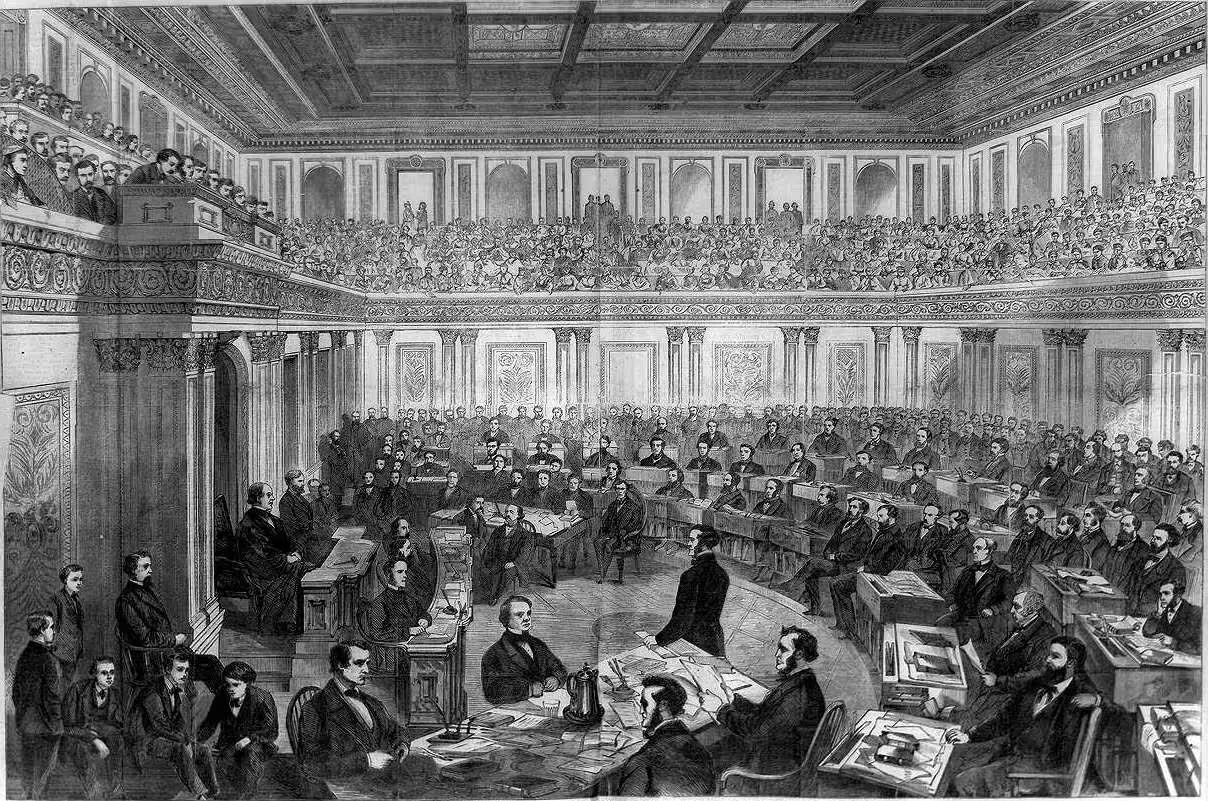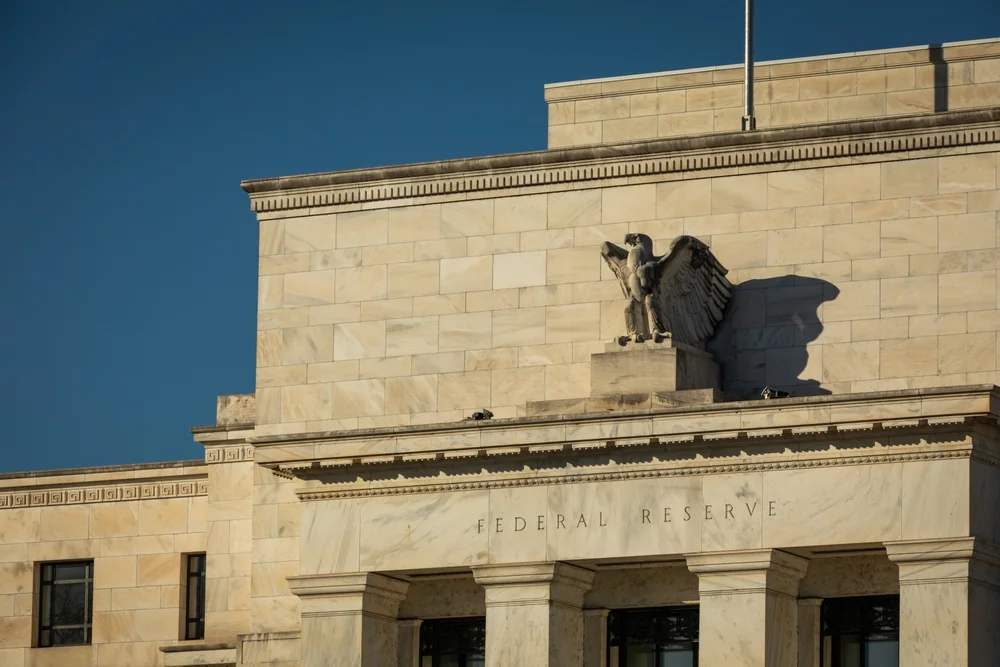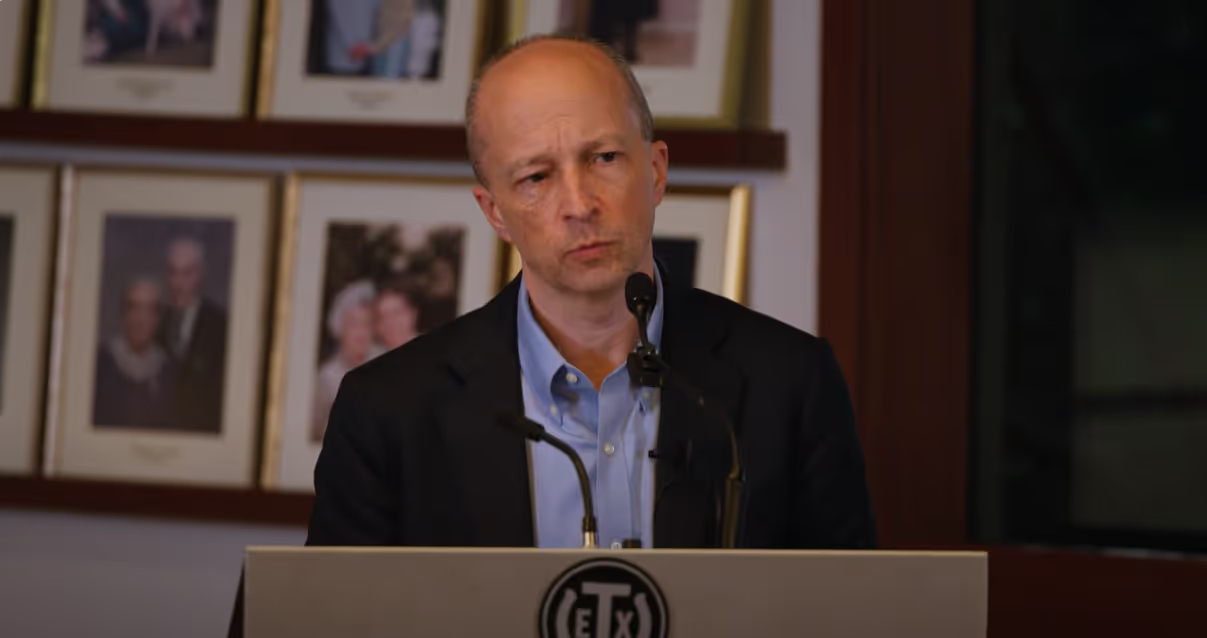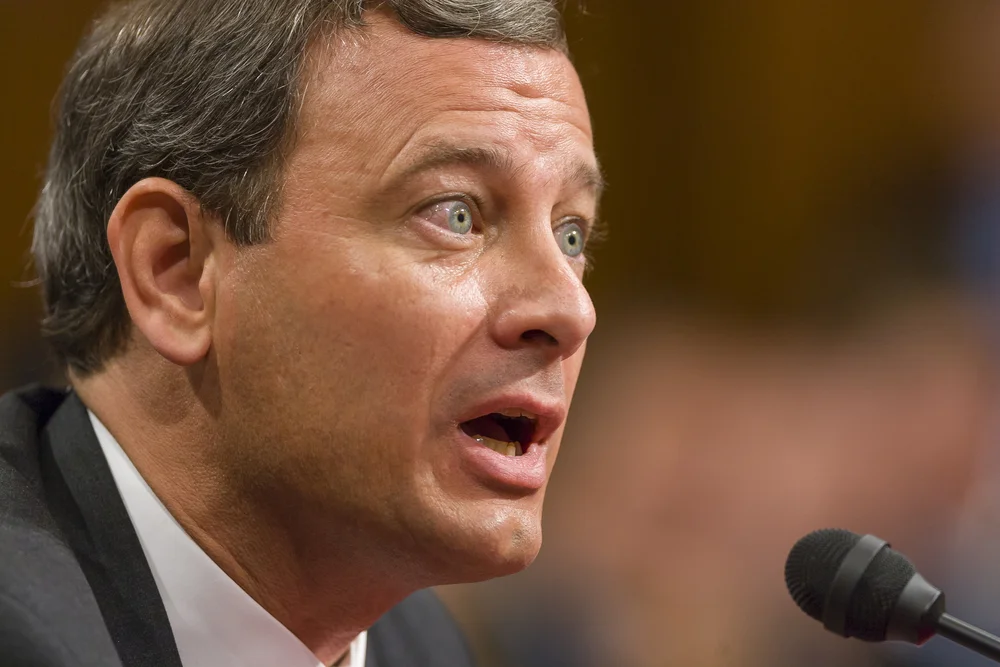
Impeachment: Is Judge Boasberg Guilty of a “High . . . Misdemeanor?”
Close examination of eighteenth century legal sources reveals that impeaching judges for bad decisions would be unconstitutional.
James E. Boasberg is the Chief Judge of the U.S. District Court for the District of Columbia. President Donald Trump and some of his allies have called for his impeachment for attempting to block the deportation of Venezuelan gang members. Assuming that Judge Boasberg’s ruling was defective—and setting aside political realities—would it be constitutional to impeach him for a bad decision? Or for a course of bad decisions?
The Constitution limits impeachment to four enumerated grounds. Article II, Section 4 states as follows:
The President, Vice President and all civil Officers of the United States, shall be removed from Office on Impeachment for, and Conviction of, Treason, Bribery, or other high Crimes and Misdemeanors.
The records of the 1787 Constitutional Convention indicate that the adjective “high” modifies both “Misdemeanors” and “Crimes.”
This enumeration of specific grounds for impeachment was one of many compromises made at the convention. In this case, the compromise was between those delegates who favored rendering impeachment very difficult or impossible and those who favored making it a purely political procedure, as it had sometimes been in Great Britain.
To the best of my knowledge, there is no evidence that Judge Boasberg is guilty of treason, bribery, or any other high crime or felony. Is a bad decision—or even a course of bad decisions—a “high . . . Misdemeanor?”
Scholars and politicians have long debated the meaning of “high misdemeanor.” The public witnessed a sample of the academic debate during televised proceedings leading to the first impeachment of President Trump, as four law professors testified before the U.S. House Judiciary Committee, each offering a competing definition. In 2018, I published a law review article offering yet another definition. I argued that a high misdemeanor is a breach of fiduciary duty—or, in Founding-era language, a breach of trust.
Why has there been so much conflict on this subject? One reason, no doubt, is that political agendas unduly influence legal academic writing. Law review articles are often written in the spirit of legal advocacy, with conclusions fixed before research begins.
But there was another reason, too: Although scholars, myself included, were examining British impeachments and the 1787-1790 constitutional debates, we were neglecting eighteenth century legal sources other than Blackstone’s Commentaries.
In fact, until comparatively recently, it was customary for law professors to conclude constitutional meaning without consulting eighteenth century law books. I always thought this was odd. After all, the Constitution is a legal document and is laden with legal terms of art. Moreover, the majority of the framers were or had been, practicing lawyers, as were most of the Federalist leaders who explained the document at the state ratifying conventions and to the general public.
Long before my 2018 impeachment article, I had found eighteenth century legal sources immensely helpful in understanding the Constitution’s original meaning. However, it was only later that I turned to those sources for guidance on the definition of “high misdemeanor.”
Here is what I learned:
English Law
During the 18th century, offenses against the British Crown were interchangeably labeled misdemeanors, offenses, contempts, and crimes. All misdemeanors were crimes and all crimes were misdemeanors. However, in common legal speech, as in common legal speech today, people often called more serious offenses “crimes” and lesser offenses “misdemeanors.”
The most serious offenses were felonies. These traditionally carried the death penalty, although by the eighteenth century the death penalty was often [H1] waived in favor of “benefit of clergy” (offering a second chance), “transportation” to Australia, and other punishments. Felonies included, but were not limited to, treason, murder, burglary, robbery, larceny, rape, and arson.
Felonies formed a subset of a group of crimes called high misdemeanors. (Synonyms included “great misdemeanors,” “high offenses,” and “misprisions”). In common speech, though, “high misdemeanors” usually denoted serious crimes that never merited the death penalty. Punishments for committing high misdemeanors included long imprisonment, stiff fines, forfeiture, and sometimes the pillory.
Founding-era sources emphasized the seriousness of high misdemeanors. Nicholas Chambers’ 1778 Cyclopaedia stated that “High crimes and misdemeanours denote offenses of a heinous nature, next to high treason. Nathan Bailey’s 1783 Universal Etymological English Dictionary defined “high misdemeanour” as “a crime of a heinous nature, next to High Treason.” Richard and John Burns’ 1792 New Law Dictionary informed the reader that a high misdemeanor was a crime “under the degree of capital, but nearly bordering thereon.”
Some examples of high misdemeanors were attempted murder, receiving stolen goods, otherwise treasonous words not accompanied by an overt act, an assault not resulting in death, and judicial bribery.
American Law
English law prevailed in the thirteen American colonies and states both before and after Independence. Accordingly, American legal sources utilized the term “high misdemeanor” and its synonyms in precisely the same way as English law books did. For example, George Webb’s The Office and Authority of a Justice of the Peace, printed in Williamsburg, Virginia in 1733, stated that “Uttering false money, knowing it to be so, is not High Treason, but a great Misdemeanor, and Finable.” Article IV of the Articles of Confederation provided for interstate extradition of fugitives “charged with, treason, felony, or other high misdemeanor in any State.”
In a September 28, 1787, letter to the Confederation Congress, Foreign Secretary John Jay discussed the case of an irresponsible sea captain who abused his passengers so severely that some of them died—and then abandoned other passengers on a deserted coast of Maine (then part of Massachusetts). Jay referred to the captain’s conduct as “Felony, if not Murder, on the high Seas” and added that “The Captain's Conduct as affecting Massachusetts may also be by their Laws a high Misdemeanour.”
The Philadelphia convention’s first draft of the Constitution reported to the convention by the Committee of Detail on August 6, 1787, included an extradition clause for “Any person charged with treason, felony or high misdemeanor”—thereby treating a high misdemeanor as a crime. Additionally, at the convention, Rufus King of Massachusetts stated that if the Constitution prohibited prosecutions for treason against individual states, those states could still “punish offenses as high misdemeanors.”
The pattern continued early in the Federal Congress. A 1789 congressional statute banned certain conflicts of interest and defined each violation as “a high misdemeanor,” punishable by removal from office, incapacity, and a $3000 fine. During the 1790s, Congress passed several statutes prohibiting activities that interfered with United States foreign policy and the enforcement of federal laws. Those offenses with penalties that included incarceration for more than a year were designated “A high misdemeanors.” One with lesser punishments was designated merely as a “A misdemeanor.”
Finally, several American court cases decided during the 1790s identified crimes of the sort considered high misdemeanors under English law to be high misdemeanors under American law.
The Elegance Consideration
The conclusion that the phrase “high . . . Misdemeanors” means non-capital, but serious, crimes explains the organization of the Article II Impeachment clause. Here it is again:
The President, Vice President and all civil Officers of the United States, shall be removed from Office on Impeachment for, and Conviction of, Treason, Bribery, or other high Crimes and Misdemeanors.
If we were to construe “A high misdemeanors” to mean non-criminal conduct, then “A Treason, Bribery, or other high Crimes and Misdemeanors” would mean “A very serious crimes and also some unspecified legal conduct.” This would be clumsy drafting not typical of the rest of the Constitution.
On the other hand, if “high misdemeanors” means “serious crimes not meriting the death penalty,” then the clause contains (1) one example of a high crime (treason), (2) one example of a high misdemeanor (bribery), (3) a general phrase covering other high crimes, and (4) a general phrase covering other high misdemeanors. This certainly is a more elegant reading than the former.
Conclusion: It would be unconstitutional to impeach Judge Boasberg for issuing a bad decision.
Robert G. Natelson, a former constitutional law professor who is senior fellow in constitutional jurisprudence at the Independence Institute in Denver, authored “The Original Constitution: What It Actually Said and Meant” (3rd ed., 2015). He is a contributor to the Heritage Foundation’s “Heritage Guide to the Constitution.”
Constitutionalism

Amicus Brief: Hon. William P. Barr and Hon. Michael B. Mukasey in Support of Petitioners
Former AGs Barr and Mukasey Cite Civitas in a SCOTUS Brief

Rational Judicial Review: Constitutions as Power-sharing Agreements, Secession, and the Problem of Dred Scott
Judicial review and originalism serve as valuable commitment mechanisms to enforce future compliance with a political bargain.

Supreme Court showdown exposes shaky case against birthright citizenship
Supreme Court will hear challenges to Trump's order ending birthright citizenship, testing the 14th Amendment's guarantee for babies born in America.

Why Is the Federal Reserve Special — and Just How Special Is It?
How does the Fed fit into the Court's reform of the administrative state?

Kneecapping Powell, Undermining the Rule of Law
Donald Trump and conservatives know the perils of lawfare all too well. Why subject Jerome Powell to the same thing?


.avif)







.avif)
.avif)


%20(1).webp)


